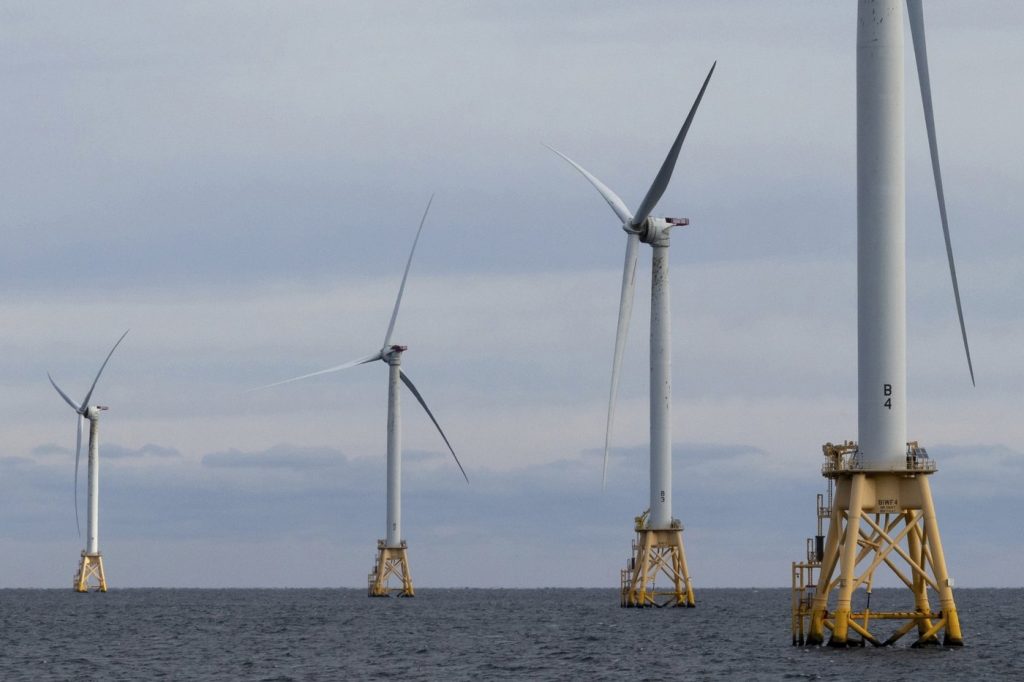HALIFAX — Two prominent environmental organizations have expressed support for Nova Scotia's ambitious initiative to significantly expand its emerging offshore wind energy sector. However, they have also emphasized the need for careful consideration and consultation throughout the process.
On Monday, Premier Tim Houston announced that Nova Scotia's plan to license offshore wind farms to generate five megawatts of electricity will be increased eightfold to 40 megawatts, which surpasses the 2.4 megawatts currently required. He urged the federal government to assist in financing the Wind West project, asserting that the surplus electricity generated could potentially meet 27 percent of Canada's overall energy demand.
"Nova Scotia is on the edge of a clean energy breakthrough," stated Houston in an online video, asserting that the province is on track to become an "energy superpower."
Gretchen Fitzgerald, executive director of Sierra Club Canada, acknowledged the boldness of the premier's plan, which includes the construction of transmission lines across the country, as a thrilling opportunity for the province. "It could be a game-changer for the region and for Canada," she remarked in an interview from Ottawa. However, Fitzgerald cautioned that the project must proceed cautiously with thorough consultations to be successful.
She remarked that both the Nova Scotia and Canadian governments must ensure long-term benefits from the budding offshore wind industry, pointing to previous shortcomings associated with the offshore oil and gas sector. "We have to make sure that we are not selling out what is a massive resource for less benefit than communities should have," Fitzgerald noted, highlighting that Nova Scotia grapples with a high rate of energy poverty. A report released in May indicated that 43 percent of Nova Scotians struggled to pay their energy bills, marking the highest proportion in Canada.
While Fitzgerald applauded Houston's clean energy ambitions, she criticized his tendency to make rapid decisions without seeking expert or public input. "Moving from a couple hundred turbines to thousands in the next decade needs to be done in a staged way so we learn how to do this right," she cautioned, suggesting that Houston seems to embrace a "move-fast-and-break-things" approach.
This perspective raises concerns related to the potential impact on sensitive marine ecosystems. "From a community benefits and acceptance point of view, breaking trust can be the biggest barrier to achieving effective climate solutions," Fitzgerald added.
A study published in October 2023 by the Public Policy Forum emphasized that the Sable Island Bank, an ocean area approximately 180 kilometers south of Nova Scotia, is among the world's optimal locations for wind energy generation. The report asserts that this region, along with several others off the Atlantic Canadian coast, has the potential to position the area as a global leader in offshore wind energy development.
The report further suggested that as the global economy transitions away from fossil fuels, Atlantic Canada faces a "once-in-a-lifetime opportunity to recover an economic vitality comparable to the Age of Sail," emphasizing that this could again be realized through wind power.
The installation of 15 gigawatts of offshore wind capacity is projected to create approximately 30,000 direct jobs annually. Despite the enthusiasm surrounding this growth, the industry must gain acceptance from Nova Scotia's fishing sector, which contributed $2.5 billion to the provincial economy in 2023 and employs around 19,000 individuals.
In Halifax, a spokesperson for the Ecology Action Centre called for the provincial government to establish public trust, particularly within coastal communities. Senior energy coordinator Thomas Arnason McNeil stated, "There really needs to be a priority on stakeholder engagement for all ocean users." He emphasized that ecological safeguards must be prioritized to protect existing livelihoods, including the crucial fishing industry, which constitutes half of Nova Scotia's economy.
While acknowledging the province's ambitious clean energy pursuits, McNeil affirmed that proper execution is essential. "We’re talking serious job creation here and a lot of revenue potentially," he said, underscoring that if managed well, the rewards could be monumental.
A call for bids to establish enough offshore turbines to generate five gigawatts of electricity is anticipated as early as this year, signaling the next step in Nova Scotia's pursuit of clean energy development.











